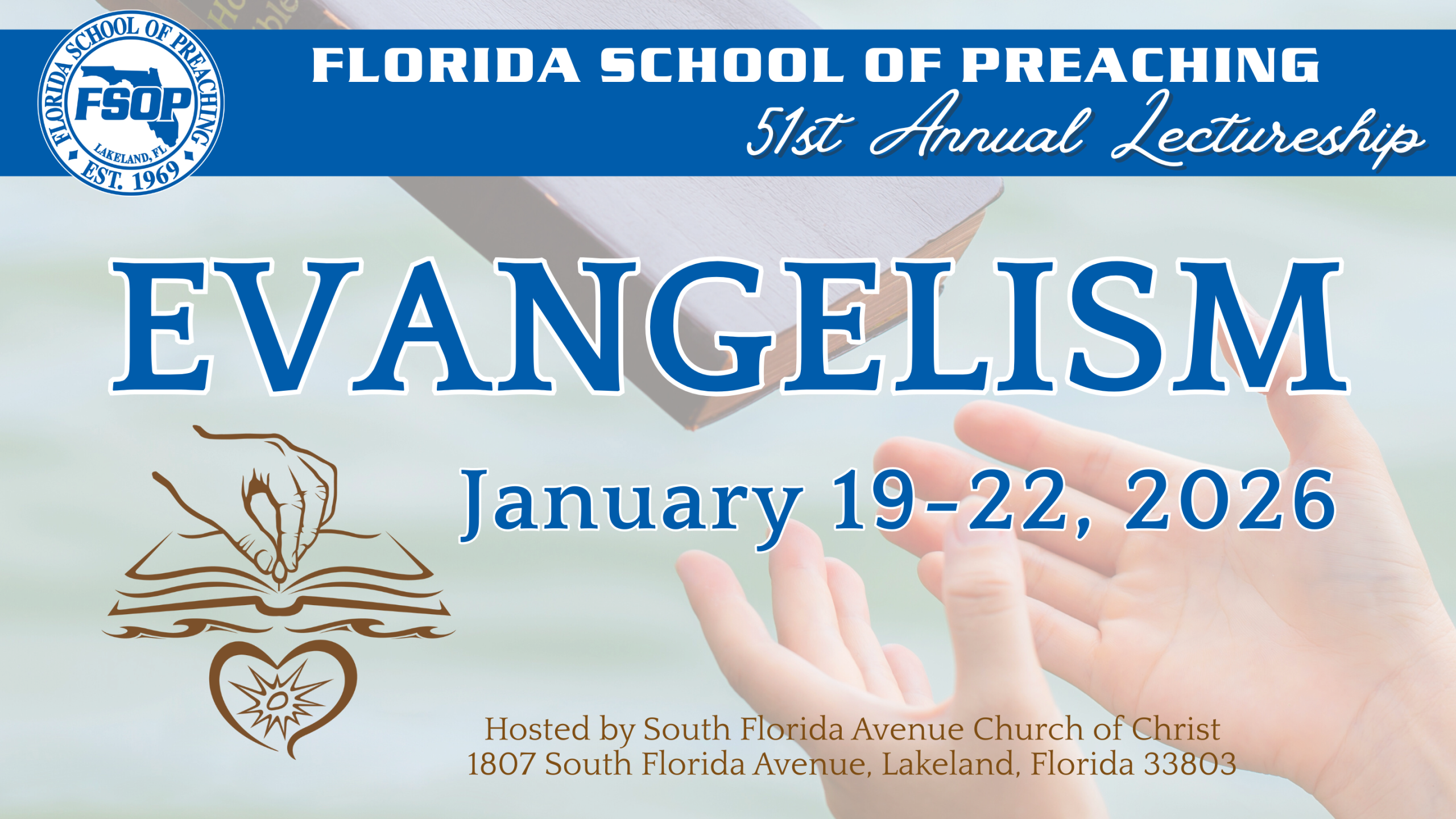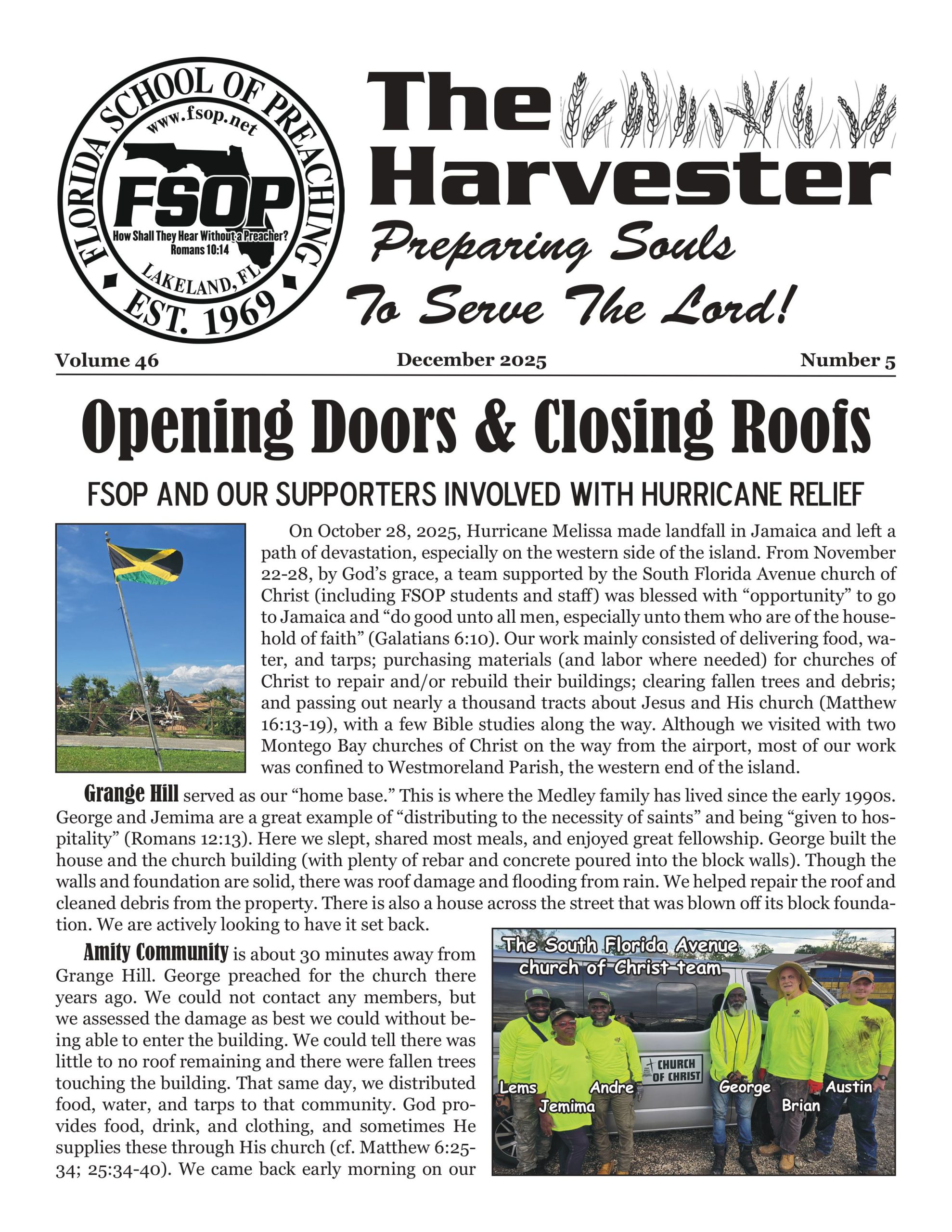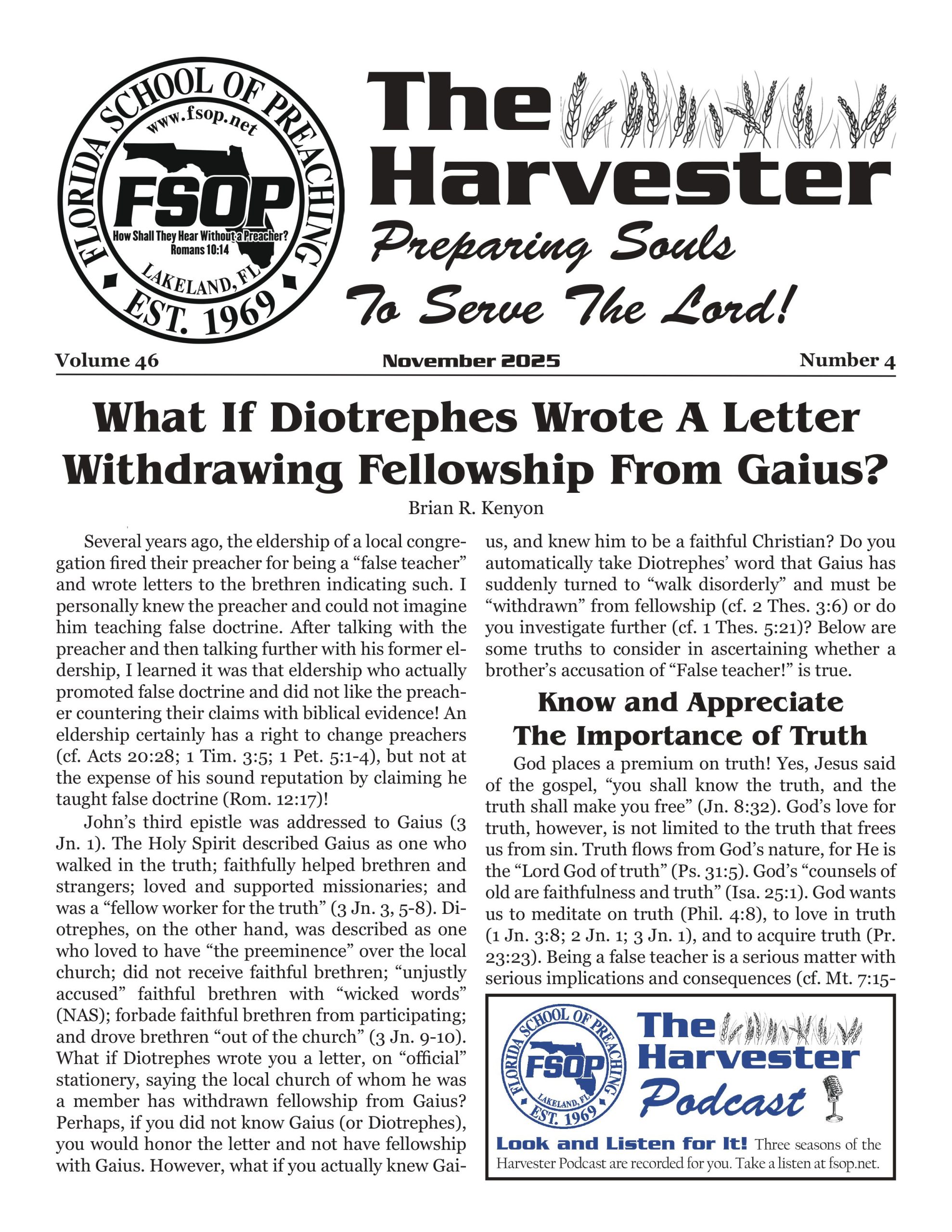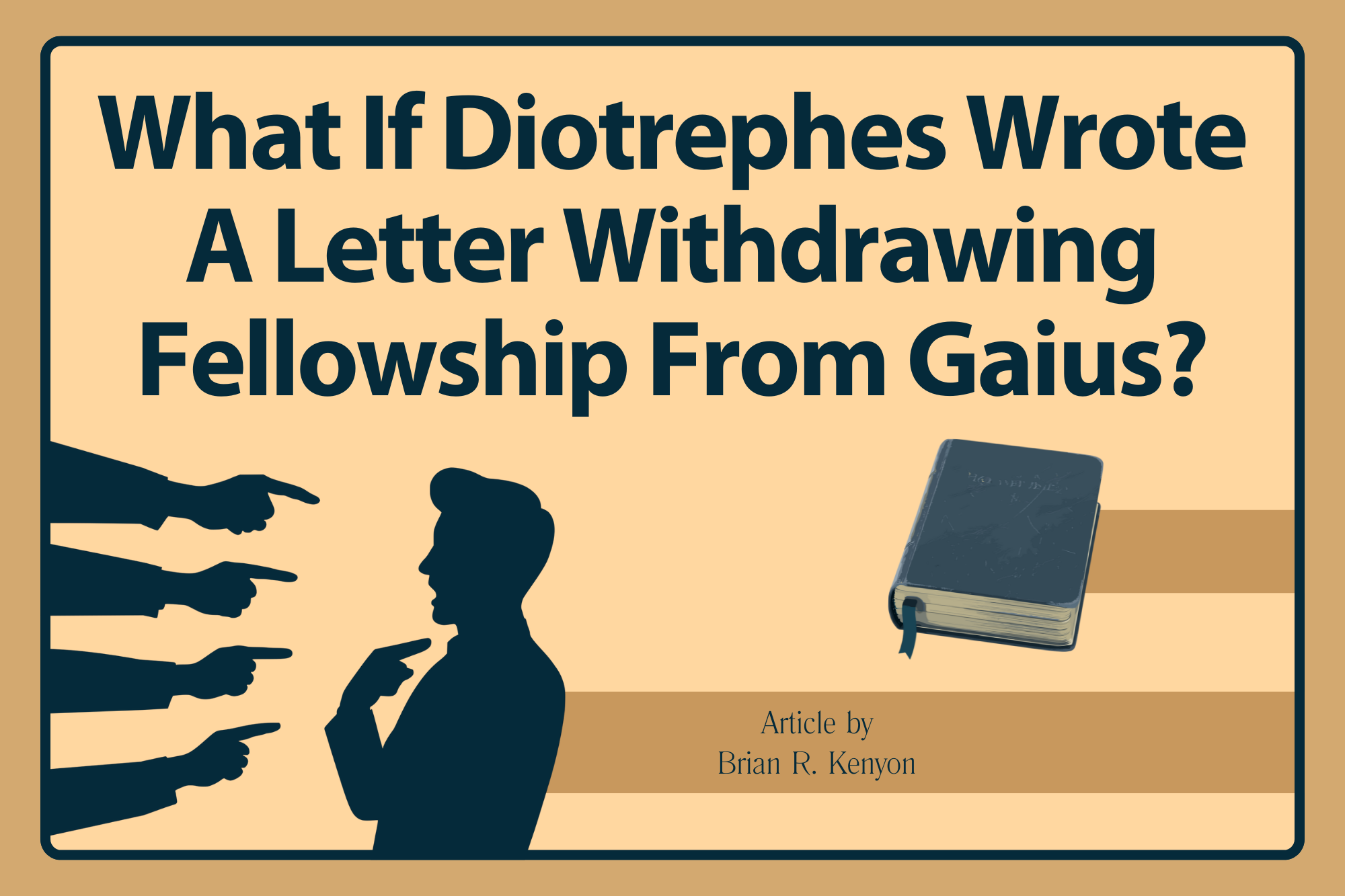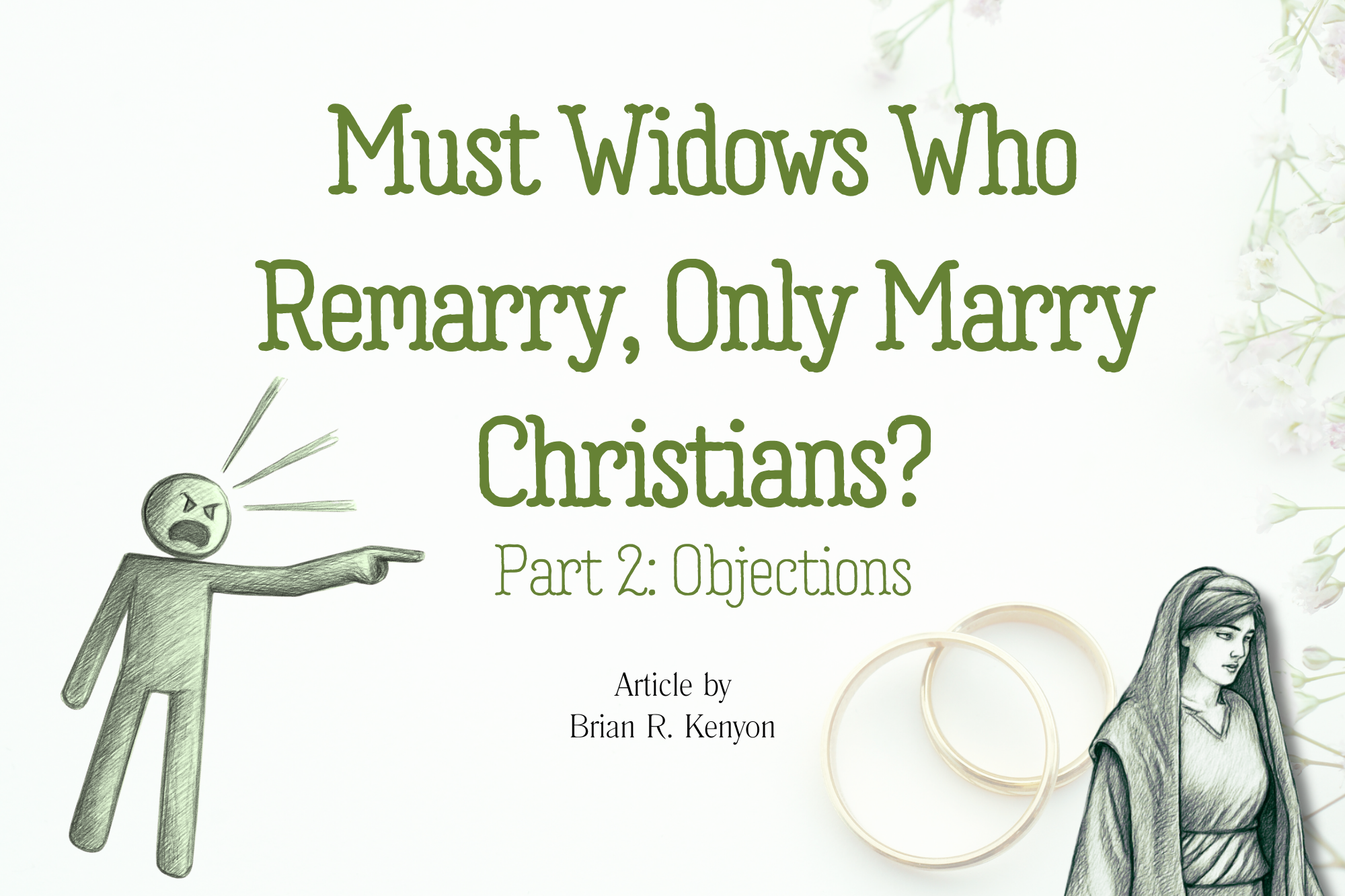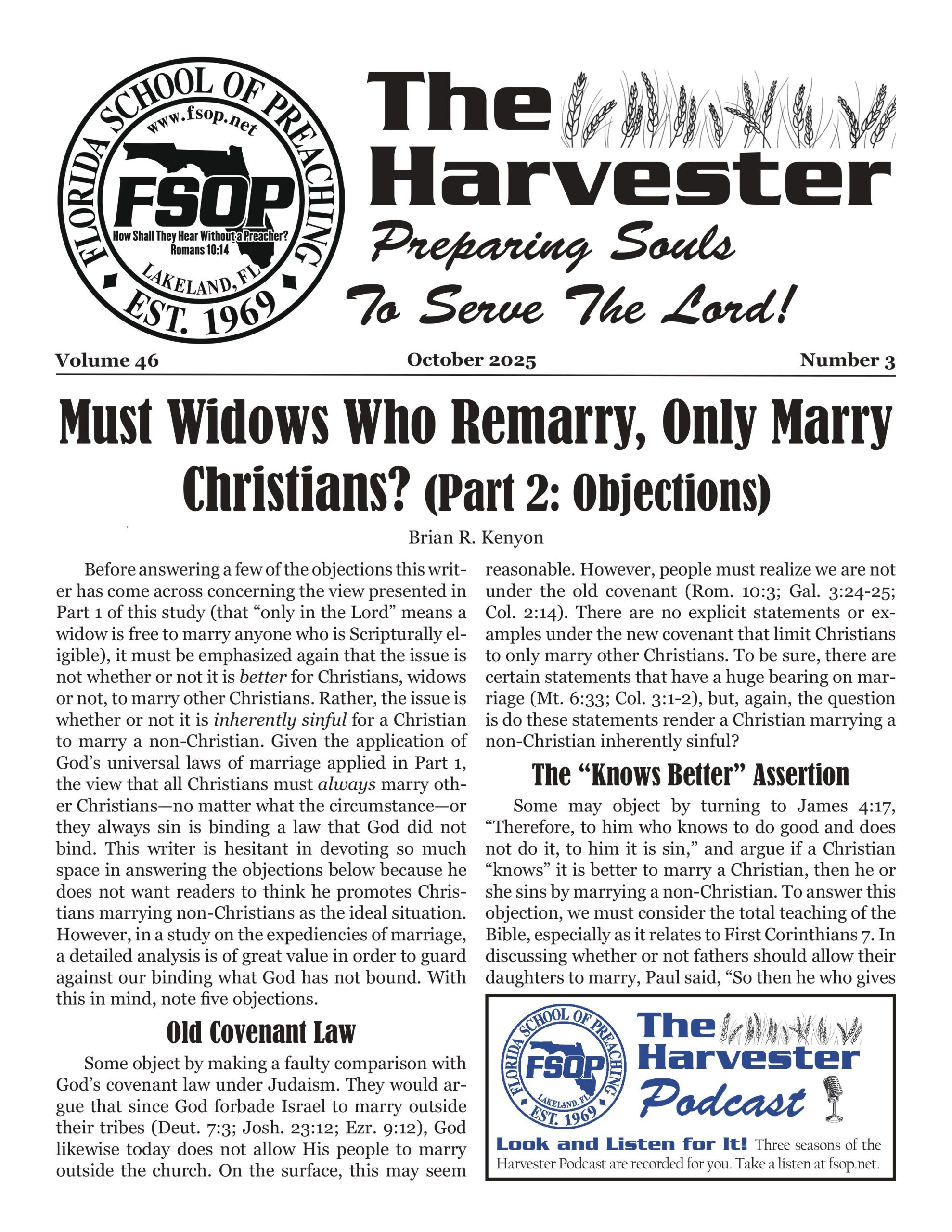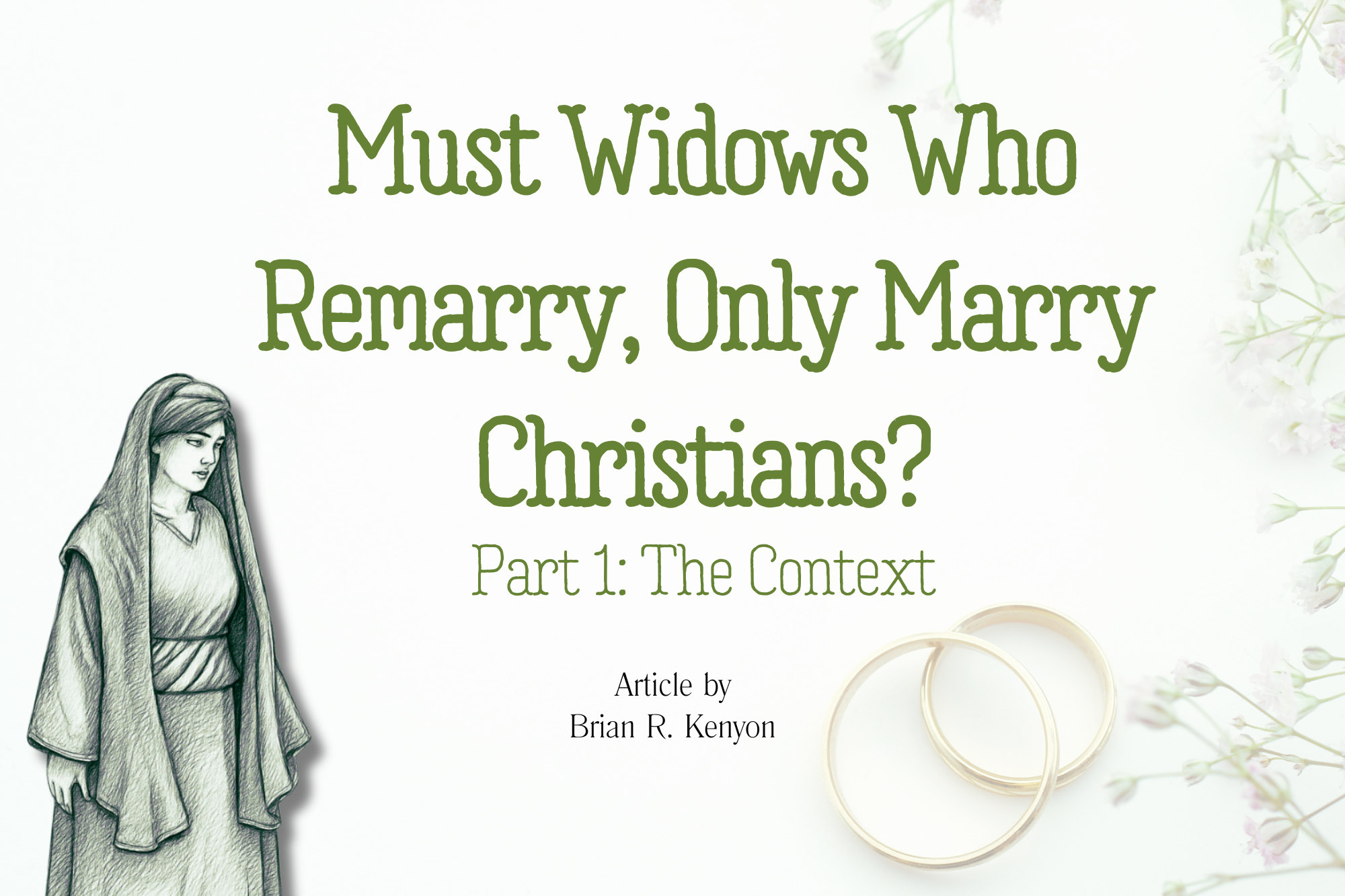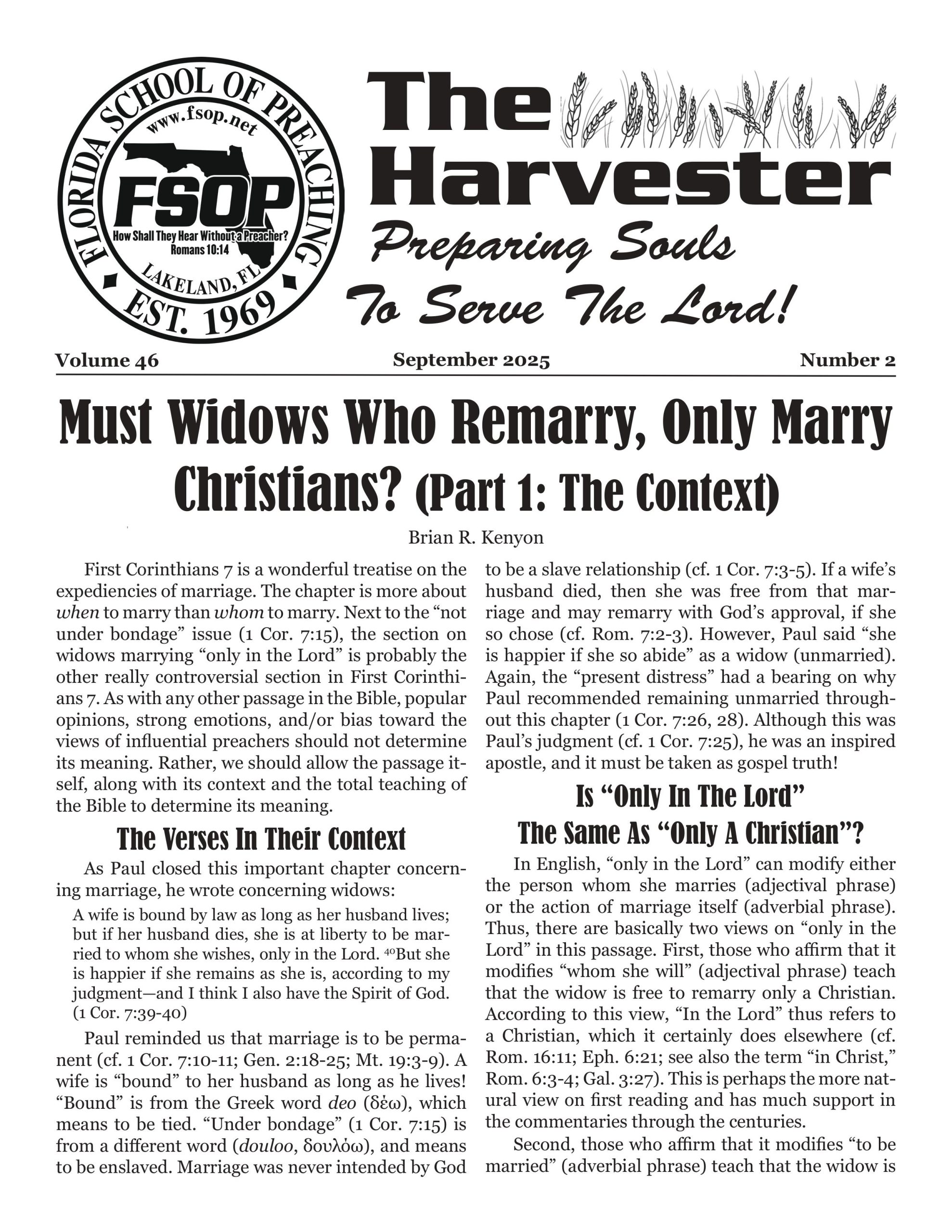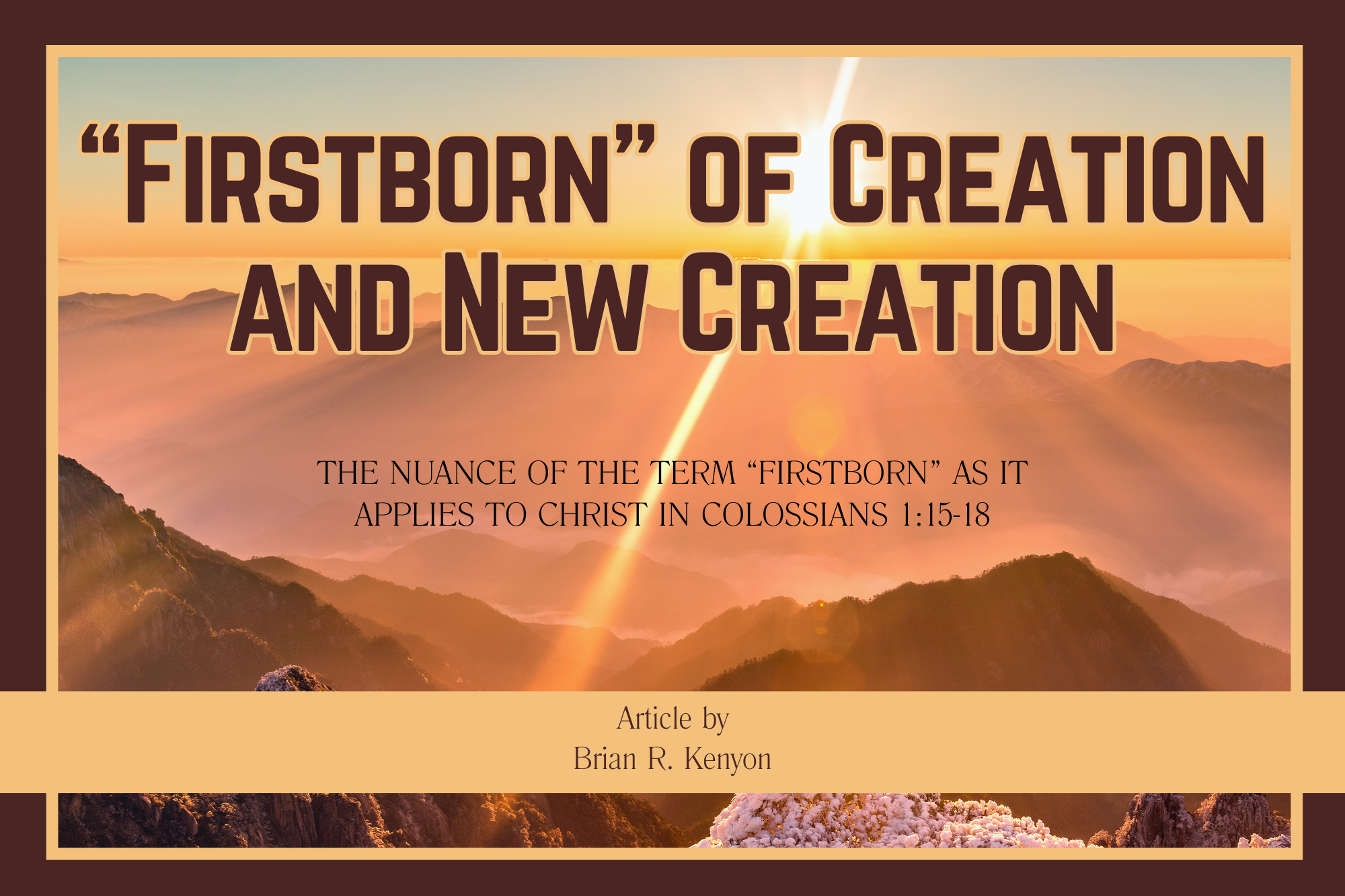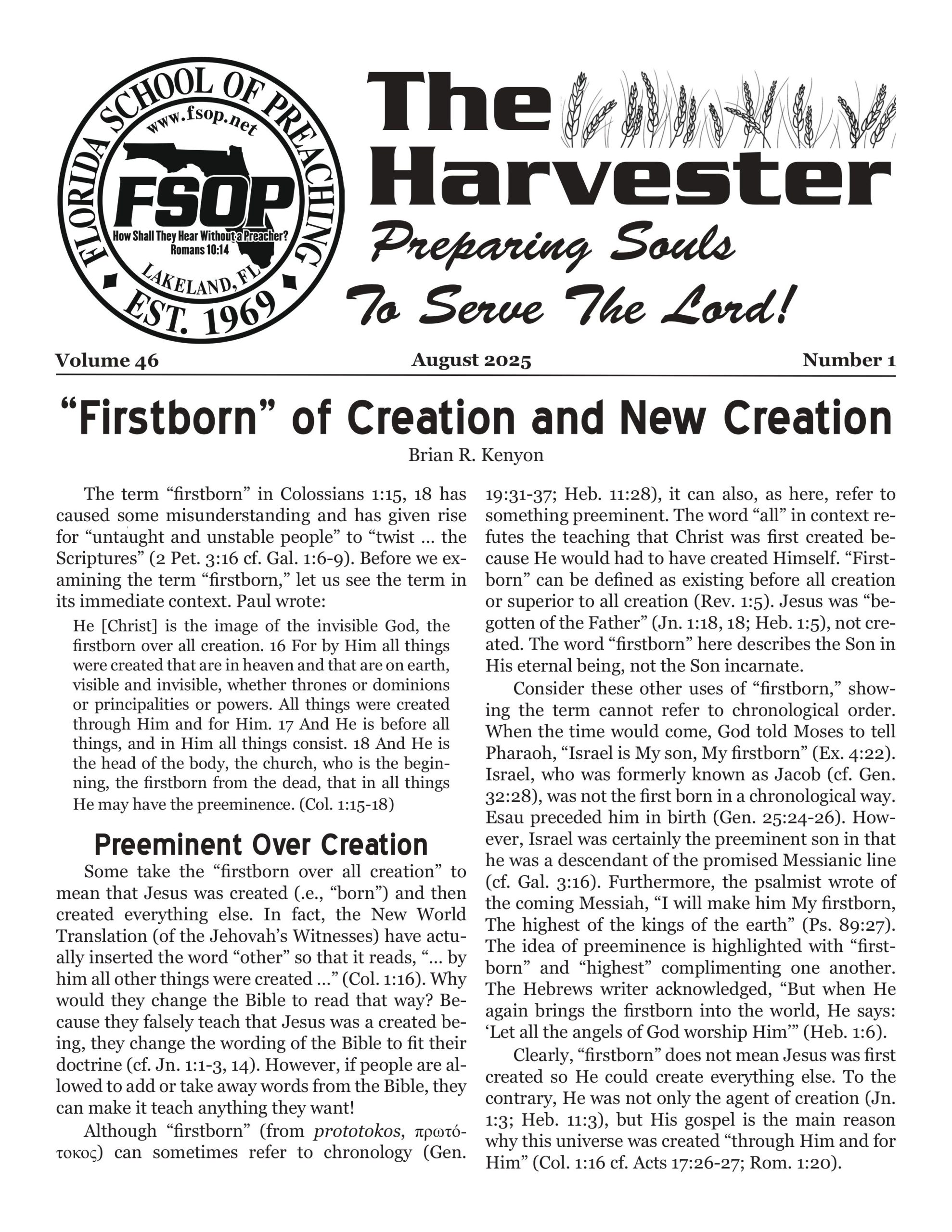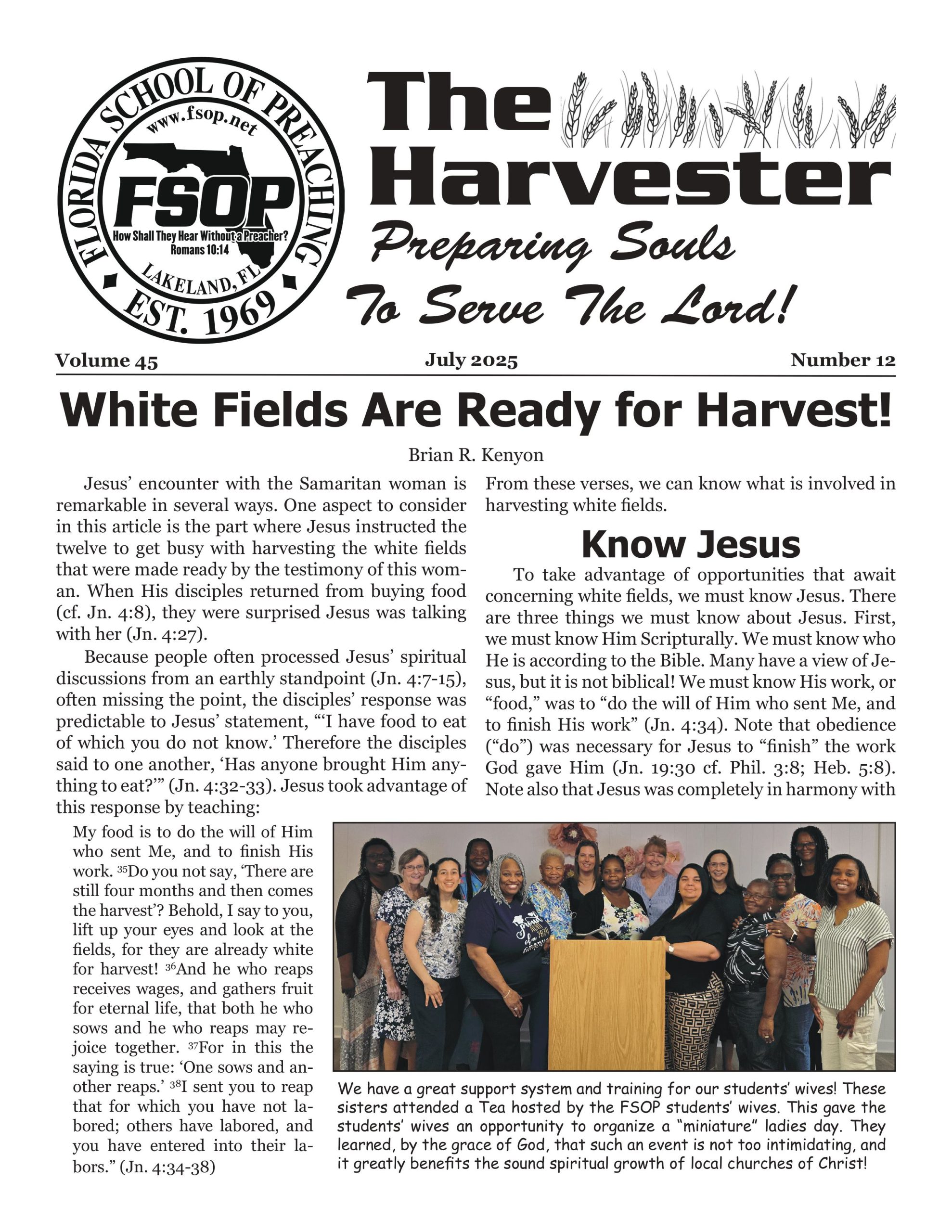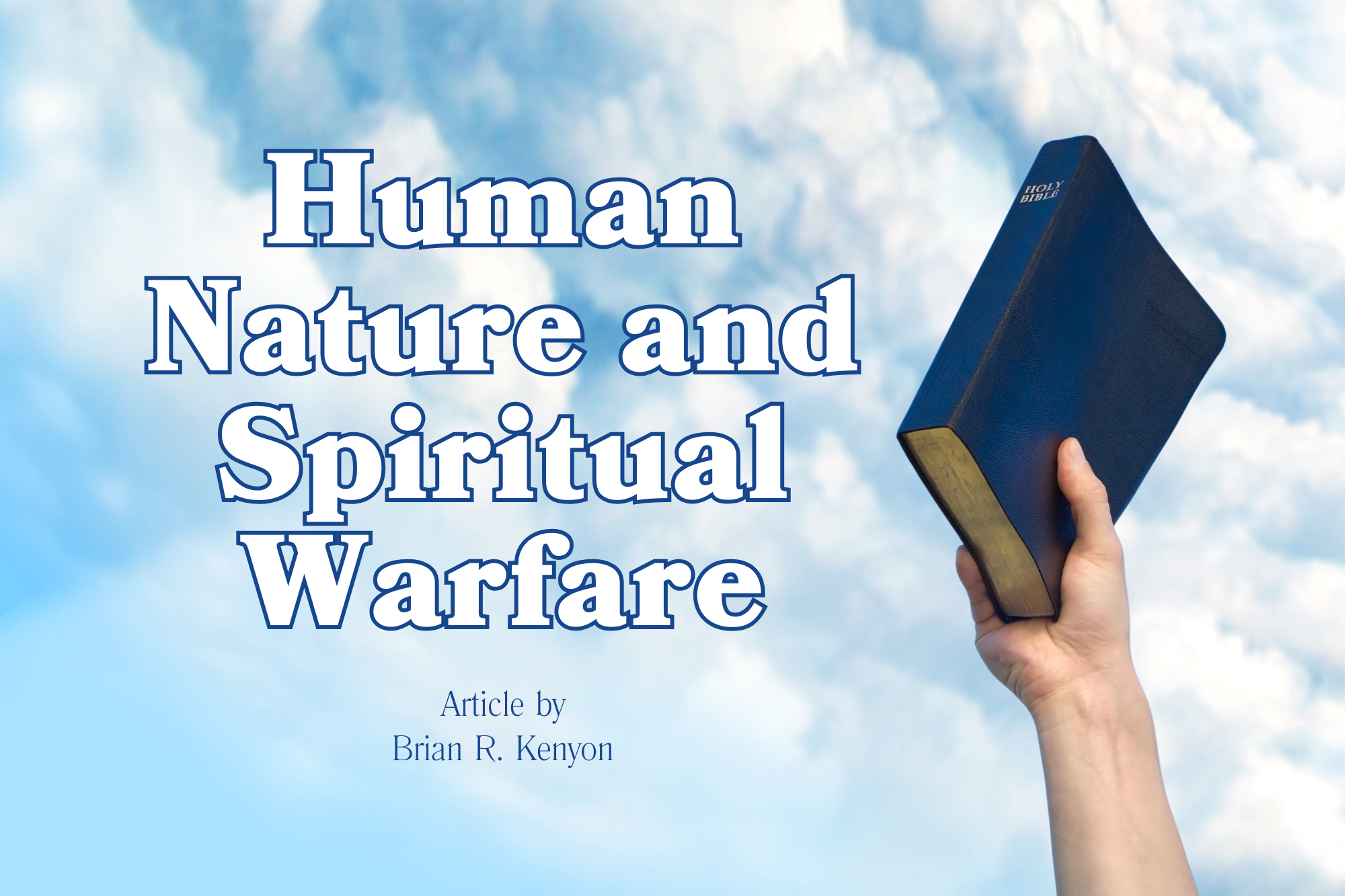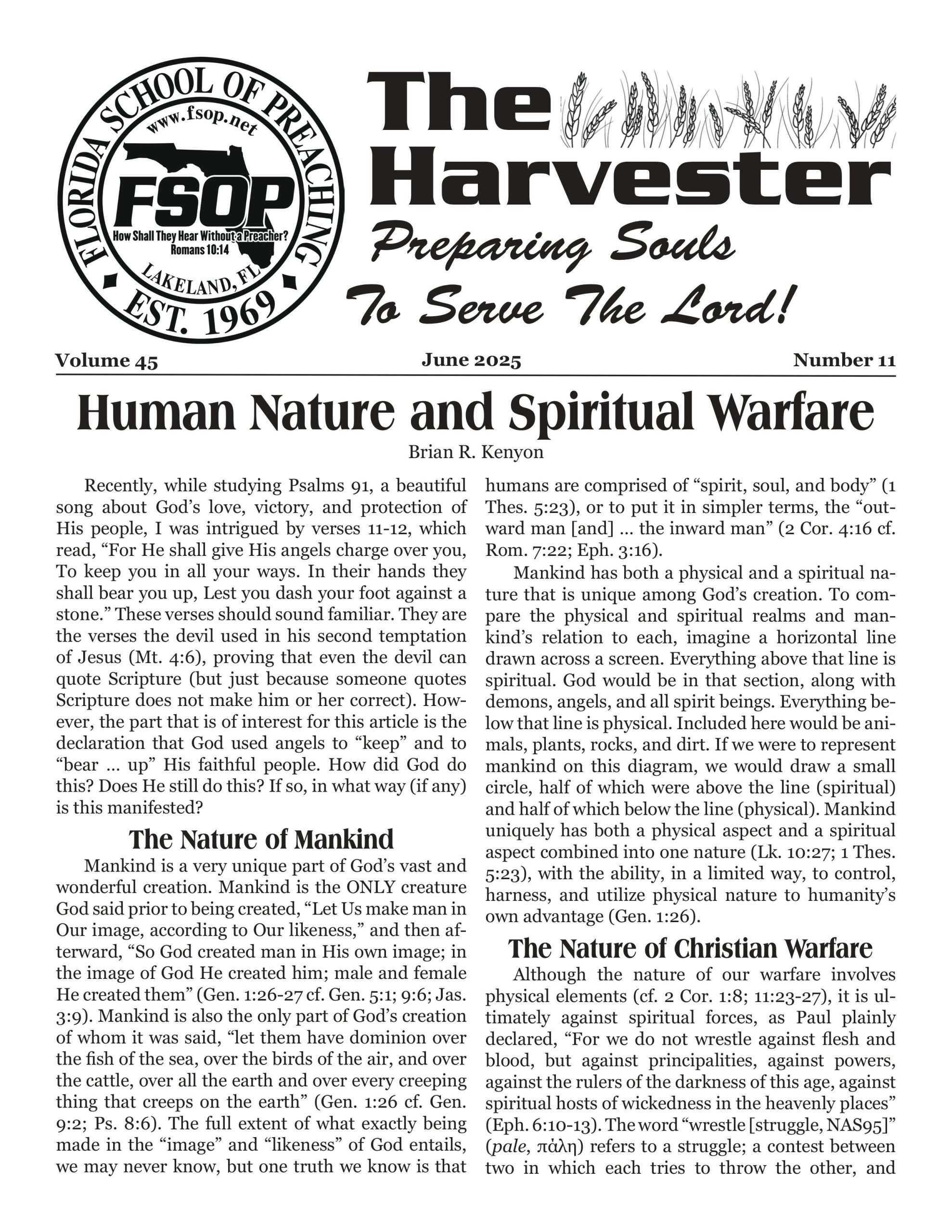Feb 09 2026
Concerning Widows – 1 Cor. 7:39-40 (S4E9)
Summary In this episode of the Harvester podcast, hosts Brian Keyon and Stephen Ford delve into the complexities of marriage as discussed in 1 Corinthians 7, particularly focusing on the status of widows and the implications of marrying non-Christians. They explore the context of ‘present distress’ that Paul refers to, the meaning of ‘only in the Lord’, and address common objections regarding the marriage of Christians to non-Christians. The conversation emphasizes the importance of understanding biblical teachings and the influence spouses have on each other’s faith. Keywords 1 Corinthians 7, marriage, widows, Christian, non-Christian, present distress, biblical teaching, marriage laws, Greek language, faith influence Chapters 00:00 Introduction to the Harvester Podcast and Season Overview00:57 Understanding 1 Corinthians 7: The Context of Marriage and Singleness02:52 Paul’s Guidance on Widows and Remarriage05:47 Exploring ‘Only in the Lord’: Interpretations and Implications09:04 The Adjectival vs. Adverbial Debate in Marriage Contexts12:04 The Influence of Spouses: Christian vs. Non-Christian Marriages15:07 Addressing Objections to Non-Christian Marriages17:45 The Role of Influence in Marital Choices20:54 Concluding Thoughts on Marriage and Christian Doctrine33:24 Marriage Dynamics in Christianity35:56 The Role of Actions in Faith38:34 Real-Life Examples of Faith in Marriage40:50 Understanding Greek Texts in Scripture44:44 The Importance of Original Language Studies47:48 Evaluating Scholarly Opinions on Marriage51:32 Contextualizing Paul’s Teachings on Marriage53:45 Universal Laws of Marriage55:50 Conclusion and Future Discussions
Feb 03 2026
Concerning Virgins – 1 Corinthians 7:25-38 (S4E8)
Summary In this episode of the Harvester Podcast, hosts Brian Kenyon and Steven Ford delve into First Corinthians 7, discussing the expediencies of marriage and singleness. They explore Paul’s teachings on the present distress affecting the Corinthian church, emphasizing the importance of focusing on spiritual matters over earthly concerns. The conversation highlights the balance between marital responsibilities and devotion to God, the role of fathers in marriage decisions, and the implications of living in a world filled with distractions. Ultimately, they encourage listeners to prioritize their relationship with Christ above all else, regardless of their marital status. Keywords 1 Corinthians 7, marriage, singleness, Paul, present distress, spiritual focus, Christian living, Harvester podcast, marriage advice, biblical guidance Chapters 00:00 Introduction to the Expediencies of Marriage00:48 Understanding Paul’s Guidance on Virgins03:11 The Present Distress and Its Implications06:06 The Importance of Remaining in Your Current State08:53 Navigating Marriage and Singleness11:55 The Challenges of Marriage in Difficult Times15:06 The Shortness of Time and Focus on God18:00 Living in the Present Distress20:21 Conclusion and Final Thoughts25:47 Living with Eternal Perspective29:13 Prioritizing God Over Relationships31:35 The Divided Concerns of Marriage34:08 Understanding Earthly Responsibilities37:48 The Balance of Joy and Sorrow39:30 Navigating Marriage and Singleness44:45 Choosing Between Good and Better
Jan 28 2026
God Can Be Glorified No Matter Our Marital State (S4E7)
Summary In this episode of the Harvester Podcast, host Brian Kenyon explores the themes of marriage and God’s glory as discussed in 1 Corinthians 7. He emphasizes that individuals can glorify God regardless of their marital state, including those who are divorced. The conversation delves into the importance of remaining in one’s calling and the implications of freedom and slavery in the context of Christian faith. Kenyon encourages listeners to understand that their spiritual journey and relationship with God can flourish irrespective of their social or marital circumstances. Keywords marriage, 1 Corinthians 7, Christian living, divorce, God’s glory, marital state, calling, freedom, slavery, spiritual growth Chapters 00:00 Introduction to the Harvester Podcast01:07 Exploring 1 Corinthians 7: Marital State and God’s Glory03:35 Understanding God’s Call in Various Life Situations10:10 The Principle of Remaining in One’s Calling19:18 The Concept of Freedom and Slavery in Christ28:04 Conclusion: Glorifying God Regardless of Marital Status
Jan 22 2026
Thursday Open Forum – Forum Panel
Youtube Video MP3 Podcast Summary The conversation explores the intersection of evangelism and technology, focusing on how social media platforms like TikTok can be utilized for outreach, particularly to those struggling with addiction and homelessness. It delves into biblical teachings, specifically the parable of the Prodigal Son, to illustrate the importance of grace and understanding in evangelism. The panel discusses practical strategies for churches to engage with their communities and the evolving landscape of social media in spreading the gospel. Chapters 00:00 Discussion on Evangelism and Social Media09:36 Addressing Addiction and Homelessness19:34 Utilizing Social Media for Outreach24:57 Convincing Others for Baptism27:46 Unique Baptism Stories30:39 Engaging with the Audience36:34 The Power of One-on-One Conversations40:50 The Evolution of Social Media and Evangelism47:52 Closing Thoughts and Future Directions Transcript *This transcript was automatically generated and may contain errors.* Forum Panel (00:00)As we have been discussing all week as we introduce this session, we’re here like a Bible study. This is not a session to, you know, set brotherhood precedent or anything like that. But we are here to talk about the lessons that we just had, and we just had one on evangelizing people with addictions, meeting people where they are, and using social media for evangelism. And if you heard the lesson, he said tick… or, TikTok is the best and forget the rest, or something like that, okay? But anyway, that’s…but he’ll take questions on other social medias as well as some of these others. And so what we’re doing is,
Jan 21 2026
Wednesday Open Forum – Forum Panel
Youtube Video MP3 Audio Summary The conversation revolves around various aspects of Bible study, focusing on the roles of elders, the concept of ‘fruit’ in evangelism, the nature of miracles, and the understanding of the one true church. The panel discusses the importance of teaching, the obligations and prohibitions in Scripture, and how to engage with others about faith, particularly in familial contexts. They emphasize the need for relationships in evangelism and the significance of using Scripture to clarify misunderstandings about miracles and the church. Chapters 00:00 Introduction and Overview of the Session00:03 Understanding Elders as Spiritual Leaders06:48 The Concept of Fruit in Evangelism15:18 Addressing Doubts About Miracles and Faith21:26 Asking Uncomfortable Questions23:53 The Role of Miracles in Faith28:53 Understanding Healing in Scripture36:06 The Importance of the Church Transcript *This transcript was automatically generated and may contain errors.* Open Forum Panel (00:03)As we have been doing for several years at this hour, we have the three back-to-back-to-back lessons on a particular topic that fits within our theme, and then we have questions and answers based upon those lessons, and then we kind of expand that in any lessons of the day, and then we expand that any lessons on evangelism, or any questions, I should say, about evangelism. And then the speakers ⁓ form kind of the panel to answer the questions, to help answer the questions, and we’re not here to come up with any brotherhood policy or anything like that. But we are here just as a Bible
Jan 21 2026
Tuesday Open Forum – Forum Panel
Youtube Video MP3 Audio Summary This conversation focuses on the importance of evangelism within the church, exploring biblical teachings, cultural practices, and the role of Jewish Christians in early Christianity. It discusses the significance of confession, baptism, and effective strategies for engaging with the community. The speakers emphasize the need for cultural diversity in the church and the importance of teaching children about faith as a means of evangelism. Chapters 00:00 Focus on Evangelism01:26 Understanding Acts and Early Evangelism08:23 Cultural Practices in the Early Church13:32 Confession and Its Role in Community21:45 Navigating Church Practices and Cultural Diversity30:59 The Complexity of Public Confession36:24 Understanding Baptism and Its Authority43:37 Effective Evangelism Strategies for Preachers56:20 Engaging Children in Evangelism Transcript *This transcript was automatically generated and may contain errors.* Open Forum (00:00)All right, so we began this question and answer series several years ago, and we want to focus on the topic. So it’s not really an open forum as per, well, I don’t know if there’s any open forums left in the Brotherhood. I guess there still are. But not just any question out of the blue. Now, at the end, if we have time, we can answer some of those other questions that come out of the blue. But we usually don’t have time. We want to focus on evangelism. But the idea is that these guys have studied these lessons pretty intense. and they’ve delivered the lessons. And so if you have a question about the topics, you what better
Jan 19 2026
Monday Open Forum – Forum Panel
Youtube Video MP3 Podcast Episode Summary In this engaging Q&A session, speakers discuss the importance of commitment to Christ and the church, emphasizing that baptism is not the end of the journey but the beginning of a lifelong walk in faith. They explore how to effectively teach new converts about the expectations of discipleship, stressing the need for ongoing education and support within the church community. The conversation highlights the challenges of ensuring that new members remain engaged and committed, addressing common pitfalls such as treating baptism as a mere ritual rather than a transformative step in a believer’s life. The speakers share practical strategies for fostering a culture of discipleship, including the importance of building relationships, providing mentorship, and creating opportunities for new members to learn and grow in their faith. They also discuss the significance of evangelism as a communal effort, encouraging church members to actively participate in outreach and support one another in their spiritual journeys. Overall, the session serves as a call to action for churches to prioritize discipleship and evangelism, ensuring that new believers are nurtured and integrated into the faith community. Chapters 00:00 Introduction and Initial Questions01:48 The Commitment to Christ and His Church06:34 Challenges in Discipleship11:48 Understanding the Role of Baptism18:22 Key Strategies for Supporting New Converts23:46 The Importance of Community and Fellowship30:31 Practical Approaches to Nurturing Faith31:01 Building Relationships for Effective Evangelism35:41 Overcoming Introversion in Faith Conversations40:03 The Importance of Comfort Zones in Evangelism42:42 Creative Approaches to Sparking Interest46:10 Leveraging Strengths in
Jan 17 2026
The “Pauline Privilege” (S4E6)
Summary In this episode of the Harvester Podcast, hosts Brian Kenyon and Steven Ford delve into the complexities of marriage as outlined in 1 Corinthians 7, particularly focusing on the concept often referred to as the “Pauline privilege.” They explore the implications of being married to an unbeliever and the conditions under which a believer may find themselves in a difficult marital situation. The discussion emphasizes the importance of understanding biblical texts in their entirety, highlighting that Paul’s teachings do not contradict Jesus’ earlier teachings on marriage and divorce. The hosts stress the need for clarity in interpreting scripture, especially regarding the nuances of vocabulary and verb tense in the original Greek language, which can significantly impact the understanding of marriage and divorce in a Christian context. Keywords 1 Corinthians 7, Pauline privilege, marriage, divorce, biblical interpretation, Christian marriage, unbelieving spouse, scripture study, Harvester Podcast, Brian Kenyon, Steven Ford Chapters 00:00 Introduction to 1 Corinthians 7 and Marriage02:49 Understanding the Pauline Privilege05:45 The Role of Unbelieving Spouses08:45 The Importance of Context in Scripture11:45 Vocabulary and Verb Tense in 1 Corinthians 714:57 The Concept of Bondage in Marriage17:50 Practical Applications of 1 Corinthians 720:57 Encouragement for Study and Understanding24:02 Conclusion and Call to Action
Jan 12 2026
Concerning Christians Married to Non-Christians (S4E5)
Summary In this episode of the Harvester Podcast, hosts Brian Kenyon and Steven Ford delve into the complexities of marriage as discussed in First Corinthians 7. They explore the nuances of being married to non-Christians, the implications of separation, and the importance of maintaining peace in relationships. The conversation emphasizes the biblical perspective on marriage, the role of the unbeliever, and the potential for conversion through godly behavior. The hosts encourage listeners to adhere to God’s teachings while navigating the challenges of mixed-faith marriages. Keywords marriage, 1 Corinthians 7, Christians, non-Christians, biblical perspective, separation, peace, conversion, podcast, Harvester Chapters 00:00 Introduction to the Harvester Podcast and Season Overview01:53 Understanding 1 Corinthians 7: Marriage and Singleness05:48 Christians Married to Non-Christians: Biblical Perspectives11:45 The Role of Behavior in Mixed-Faith Marriages16:10 Paul’s Teachings on Separation and Divorce19:23 Exploring the Greek Text: Key Terms in Marriage Context23:11 The Role of Believers and Unbelievers in Marriage28:27 Understanding Sanctification in Mixed Marriages35:32 Navigating Departures in Marriage41:23 The Call to Peace in Relationships 43:26 The Importance of Doing Right Regardless of Outcomes
Jan 05 2026
Concerning the Unmarried and Widows and Those Who Are Already Married (S4E4)
Summary In this episode of the Harvester Podcast, Brian Kenyon explores the themes of marriage, singleness, and divorce as outlined in 1 Corinthians 7. He discusses the biblical foundation of marriage, the importance of remaining single during times of distress, and the guidance provided for both the unmarried and married individuals. The conversation emphasizes the significance of reconciliation in marriage and the moral implications of sexual relationships within the context of God-approved unions. Keywords marriage, unmarried, widows, 1 Corinthians 7, Paul, biblical guidance, relationships, divorce, reconciliation, sexual relationships Chapters 00:00 Introduction to the Expediencies of Marriage05:04 Understanding the Unmarried and Widows15:07 Guidance for the Married29:52 Conclusion and Call to Action
Dec 29 2025
General Principles of Marriage and Sexual Relationships (S4E3)
Summary In this episode of the Harvester Podcast, Brian Kenyon discusses the expediencies of marriage as outlined in 1 Corinthians chapter 7. He explores the biblical foundations of marriage, the general principles governing marital relationships, and the obligations and privileges that come with marriage. The conversation also touches on the gift of singleness and the importance of self-control in the context of marriage and relationships. Keywords marriage, 1 Corinthians 7, sexual relationships, biblical principles, singleness, obligations, privileges, companionship, God, love Chapters 00:00 Introduction to the Harvester Podcast00:26 Foundations of Marriage in Scripture03:16 General Principles of Marriage and Sexual Relationships14:17 Obligations and Privileges in Marriage22:04 Self-Control and the Gift of Singleness28:25 The Importance of Commitment in Marriage
Dec 22 2025
Preliminary Marriage Passages: Matthew 19:3-12 (S4E2)
Summary In this episode of the Harvester podcast, Brian Kenyon discusses the foundational aspects of marriage as outlined in the Bible. The focus is on Jesus’ teaching in Matthew 19:3-12, and His references to Genesis 2:18-25 and Deuteronomy 24:1-4. The conversation delves into the significance of marriage, the challenges posed by the Pharisees, and the implications of divorce as permitted by God. Kenyon emphasizes the importance of understanding God’s laws regarding marriage and divorce, and the need for commitment in relationships. The episode sets the stage for further exploration into the expediencies of marriage in 1 Corinthians 7 in future discussions. Keywords Marriage, Divorce, Biblical Teachings, Matthew 19, Genesis, 1 Corinthians, Christian Perspective, Pharisees, God’s Law, Marital Commitment Chapters 00:00 Introduction to Marriage and Its Importance02:51 Foundational Biblical Passages on Marriage05:38 Jesus’ Teachings on Divorce and Remarriage08:54 Cultural Context of Divorce in Judaism11:50 Understanding the Law of Moses on Divorce14:39 God’s View on Divorce and Marriage17:35 The Hardness of Heart and Its Implications20:45 The Role of Eunuchs and Celibacy23:32 Conclusion and Future Discussions on 1 Corinthians 7
Dec 16 2025
Preliminary Marriage Passages: Genesis 2:18-25 (S4E1)
Summary In this episode of the Harvester podcast, the host Brian Kenyon discusses the significance of marriage as outlined in the Bible, first focusing on Genesis 2:18-24, as it is a major background passage on marriage in general and will relate to First Corinthians 7. The conversation explores the foundational principles of marriage, the need for intimate companionship, and the characteristics of a God-ordained marriage, emphasizing its permanence and commitment. The episode sets the stage for a deeper exploration of the expediencies of marriage in First Corinthians 7. Keywords marriage, companionship, Genesis, Corinthians, intimacy, commitment, permanence, biblical principles, family, relationships Chapters 00:00 Introduction to Marriage and Its Importance02:08 Foundational Biblical Principles of Marriage07:08 The Need for Intimate Companionship13:38 Characteristics of God-Ordained Marriage25:20 The Permanence of Marriage and Its Implications
Dec 08 2025
Bonus Bumper-Sowed 4 – Lessons We Learn From Losing
Summary In this episode of the Harvester podcast, the hosts discuss the valuable lessons a coach can learn from losing a ball game, particularly in the context of leadership within the church. They emphasize the importance of humility, character development, and spiritual growth that can arise from defeats. The conversation highlights how losses reveal our true selves, expose gaps in our abilities, and challenge our faith. The hosts encourage listeners to embrace losses as opportunities for growth and to trust in God’s plan even during difficult times. Keywords leadership, church, learning from losses, humility, faith, spiritual growth, coaching, character development, mental toughness, teamwork Chapters 00:00 Introduction to Leadership and Learning from Losses02:02 The Importance of Learning from Losses05:10 Rejoicing in Suffering and Building Character10:34 Unity and Humility in the Face of Defeat11:53 Identifying Gaps and Blind Spots15:49 Refining Through Losses20:16 Faith and Trust During Difficult Times25:46 Conclusion: Embracing Losses as Learning Opportunities
Dec 01 2025
Opening Doors and Closing Roofs
FSOP’s goals in training students to be full-time Gospel preachers involves learning the Bible, improving preaching and evangelizing skills, and giving opportunities for practical applications of what students have learned. We had one such opportunity for the practical applications aspect during our Thanksgiving Break. Members of the South Florida Avenue church of Christ and other local congregations donated funds for Jamaican hurricane relief. A small team from SFA, including FSOP students and staff, went to the island nation to help bring food, water, and tarps, to clear brush, and to repair buildings, with a little evangelistic Bible studies along the way. This article details some of that great work!
Nov 17 2025
Wrap-up of the Christian Apologetics Season (S3E16)
Summary In this final session of the Christian apologetics series, the hosts summarize key concepts discussed throughout the season, emphasizing the importance of being prepared to defend one’s faith. They explore the significance of 1 Peter 3:15, present various arguments for the existence of God, and establish the Bible as the Word of God. The discussion also includes the resurrection of Jesus and addresses common objections to Christianity. Finally, the hosts propose future topics for study to deepen understanding and bolster faith. Keywords Christian apologetics, evidence for faith, existence of God, Bible as God’s word, resurrection of Jesus, addressing objections, future study topics Chapters 00:00 Introduction to Christian Apologetics01:17 Summary of Key Concepts03:17 Understanding 1 Peter 3:1508:27 Arguments for the Existence of God15:44 The Bible as the Word of God18:40 The Resurrection of Jesus19:35 Addressing Objections to Christianity22:50 Future Topics for Study31:38 Conclusion and Final Thoughts
Nov 10 2025
Addressing the Problem of Evil – Part 2 (S3E15)
Summary In this episode, the hosts delve into the problem of evil, a significant argument used by atheists to challenge the existence of God. They explore the atheistic claim that God’s omnipotence, omnibenevolence, and the existence of evil cannot coexist. The discussion transitions into biblical responses that affirm the compatibility of these attributes with the presence of suffering. Key doctrines such as soul-making, the probationary nature of life, and the stakes of eternity are examined, alongside the role of Jesus Christ as a guiding pattern. The conversation concludes with reflections on the infinite nature of God and the epistemic distance between God and humanity, emphasizing the importance of understanding these concepts in the context of Christian apologetics. Keywords Christian apologetics, problem of evil, atheism, biblical responses, suffering, soul-making, probationary period, Jesus Christ, infinite God, epistemic distance Chapters 00:00 Introduction to the Problem of Evil03:02 Exploring Atheistic Arguments06:05 Biblical Responses to Evil08:56 The Role of Suffering in Soul-Making11:58 Probationary Period and Stakes of Eternity15:05 Jesus Christ as the Pattern18:00 Understanding Mystery in Suffering20:52 The Infinite Nature of God23:53 Epistemic Distance Between God and Man29:56 Conclusion and Summary of Doctrines
Nov 03 2025
Addressing the Problem of Evil – Part 1 (S3E14)
Summary In this episode, the hosts delve into the complex issue of the problem of evil, exploring atheistic arguments against the existence of God based on the presence of suffering. They discuss philosophical perspectives from notable thinkers like Epicurus, David Hume, and J.L. Mackey, and examine how these arguments can be countered with biblical teachings. The conversation emphasizes the importance of free will, the nature of suffering, and the role of natural laws in understanding the coexistence of an all-powerful, all-loving God and the reality of evil in the world. The hosts outline ten biblical doctrines that provide a framework for reconciling these concepts, ultimately affirming that suffering can have value and purpose in the context of faith. Keywords problem of evil, Christian apologetics, God’s nature, suffering, free will, biblical doctrines, atheistic arguments, moral philosophy, Christian evidences, philosophical perspectives Chapters 00:00 Introduction to the Problem of Evil02:52 The Atheistic Argument from Evil05:42 Exploring Biblical Responses to Evil08:39 The Nature of God and Suffering11:57 The Role of Free Will in Suffering14:41 Understanding Regularity and Mutual Interferences17:35 Biblical Doctrines Addressing Suffering20:59 The Value of Suffering and Character Building23:58 Conclusion and Future Discussions
Nov 01 2025
What If Diotrephes Wrote A Letter Withdrawing Fellowship From Gaius?
Too many times, some brethren are quick to pull the “false teacher” (accusation) trigger. Reasons for this are varied, from wanting to perceive themselves as the being the biggest “liberal slayer” in the brotherhood to weaponizing disfellowshiping on someone they hold a grudge against for whatever reason (usually envy is involved) to sincerely thinking they are doing the brotherhood a favor by exposing real false doctrine. What would you do if a brother you recently knew to sound was now accused of being a false teacher? Would you take the accuser’s word? Would you talk first to one being accused? This article, gives some considerations in dealing with this kind of situation.
Oct 27 2025
Addressing Some Objections to the Bible’s Inspiration – Part 2 (S3E13)
Summary In this episode of the Harvester podcast, hosts Brian Kenyon and George Beals delve into Christian evidences and apologetics, addressing common objections to the Bible’s validity. They explore alleged conflicts within the scriptures, examining the specific example of whether the men accompanying Saul of Tarsus actually heard the voice of Jesus on the road to Damascus. The discussion also covers claims of factual inaccuracies in the Bible, particularly regarding measurements and mathematical precision. The hosts emphasize the importance of context in understanding biblical texts and highlight the concept of scientific foreknowledge in scripture. They conclude by introducing the problem of evil as a significant topic for future episodes. Keywords Christian evidences, Bible, apologetics, conflicts, Damascus road, factual inaccuracies, scientific foreknowledge, problem of evil Chapters 00:00 Introduction to Christian Evidences02:47 Addressing Alleged Conflicts in the Bible05:40 Understanding Biblical Language and Context09:06 Examining Historical and Mathematical Claims11:53 The Problem of Precision in Scripture14:53 Scientific Foreknowledge in the Bible17:48 Resources for Further Study20:36 The Problem of Evil23:57 Conclusion and Invitation for Questions
Oct 20 2025
Addressing Some Objections to the Bible’s Inspiration – Part 1 (S3E12)
Summary In this episode of the Harvester podcast, hosts George Beals and Brian Kenyon delve into the topic of Christian evidences, specifically addressing alleged conflicts within the Bible. They explore the story of Jairus’s daughter, examining the differing accounts in the Gospels and how emotional context plays a role in these narratives. The discussion also covers the inscription on the cross, highlighting the complementary nature of the Gospel accounts. The hosts emphasize the importance of understanding the Bible’s consistency and the implications for its divine authority, while also inviting listeners to engage with future discussions on biblical apologetics. Keywords Christian evidences, Bible conflicts, Jairus’s daughter, inscription on the cross, apologetics Chapters 00:00 Introduction to Christian Evidences02:01 Addressing Alleged Conflicts in the Bible20:09 Examining the Inscription on the Cross
Oct 13 2025
The Bible Teaches Jesus Was Raised from the Dead (Mt. 20:18-19) (S3E11)
Summary In this episode of the Harvester Podcast, hosts George Beals and Brian Kenyon discuss the resurrection of Jesus Christ as a central theme in Christian evidences. They explore the Bible’s claims about the resurrection, its prophetic foundations, and the implications for Christian faith. The conversation emphasizes the unity of the biblical narrative and the absence of cultural errors, reinforcing the belief in the Bible as the inspired Word of God. The episode concludes with an invitation for further exploration of objections to biblical inspiration in future discussions. Keywords Christian Evidences, Resurrection, Bible, God, Faith, Inspiration, Prophecy, Jesus Christ, Salvation, Theology Chapters 00:00 Introduction to Christian Evidences10:53 The Resurrection of Jesus Christ42:01 Conclusion and Future Discussions
Oct 06 2025
The Bible Is the Word of God – Part 2 (S3E10)
Summary In this episode of the Harvester Podcast, the hosts delve into the topic of Christian evidences, focusing on the argument that the Bible is the Word of God. They explore various properties that support this claim, including the unity of theme throughout the Scriptures, the absence of cultural errors, and the fulfillment of predictive prophecies. The discussion emphasizes the significance of Jesus Christ in the context of these properties and concludes with a call to understand the evidence supporting the resurrection of Jesus. Keywords Bible, Word of God, Christian evidences, unity of theme, predictive prophecy, cultural errors, Jesus Christ, sufficiency of scripture, apologetics, resurrection Chapters 00:00 Introduction to the Harvester Podcast01:10 Establishing the Bible as the Word of God05:21 Examining the Properties of the Bible13:49 Unity of Theme in Scripture20:59 Cultural Errors and Their Absence27:13 Fulfillment of Predictive Prophecy30:52 The Sufficiency of the Bible36:02 The Uniqueness of Jesus Christ40:47 Conclusion and Next Steps
Oct 01 2025
Must Widows Who Remarry, Only Marry Christians? Part 2: Objections
Must the widowed person who decides it is time to “move on” and remarry, marry only a Christian? In Part 1 of this series, we examined what First Corinthians 7:39 actually teaches concerning widows’ remarrying “only in the Lord.” In this article, we will address some objections people may raise to the conclusions of the text.
Sep 29 2025
The Bible Is the Word of God – Part 1 (S3E9)
Summary In this episode of the Harvester podcast, Brian Kenyon and George Beals discuss the evidences supporting the Bible as the Word of God. They explore the concepts of natural and special revelation, the role of conscience in seeking God, and the expected properties of a divine book. The conversation emphasizes the importance of understanding the Bible’s claims and the evidence that supports its divine origin, setting the stage for further exploration in the next episode. Keywords Christian evidences, Bible, revelation, natural revelation, special revelation, conscience, divine book, apologetics, faith, God Chapters 00:00 Introduction to Christian Evidences01:47 The Bible as Revelation from God05:46 Natural vs. Special Revelation09:45 The Role of Conscience in Seeking God15:33 Illustration of Seeking Revelation21:56 Expected Properties of a Divine Book26:50 Conclusion and Next Steps
Sep 22 2025
The Existence of God: Moral Argument 3 (The Human Conscience) (S3E8)
Summary In this episode of the Harvester Podcast, the discussion revolves around the moral argument for the existence of God, focusing on the role of conscience in moral understanding. The hosts explore the differences between subjective and objective ethics, the implications of conscience as a moral guide, and the philosophical insights of John Henry Newman regarding the connection between conscience and the divine. The conversation culminates in a critique of macroevolution as an explanation for conscience, asserting that it must originate from a personal God. Keywords moral argument, existence of God, conscience, subjective ethics, objective ethics, Christian apologetics, moral law, Newman’s perspective, macroevolution, objective morality Chapters 00:00 Introduction to the Moral Argument02:34 Exploring Subjective vs. Objective Ethics05:17 The Role of Conscience in Moral Understanding07:45 The Conscience Argument for the Existence of God10:49 Newman’s Perspective on Conscience13:36 The Nature of Conscience and Its Origin16:33 Conscience vs. Macroevolution19:56 Conclusion and Next Steps
Sep 15 2025
The Existence of God: Focusing on Premise 3 in Argument 2 (S3E7)
Summary In this episode of the Harvester podcast, the hosts delve into the moral argument for the existence of God, exploring the nature of objective morality, the implications of natural law, and the role of conscience in moral awareness. They discuss various biblical affirmations of natural law and how it relates to judgment and accountability. The conversation emphasizes the universal application of moral law and concludes with a call to action for listeners to seek God and understand the moral framework provided in scripture. Keywords moral argument, existence of God, Christian apologetics, objective morality, natural law, conscience, biblical ethics, moral evil, judgment, accountability Chapters 00:00 Introduction to the Moral Argument for God01:25 Reviewing the Moral Argument: Premises and Standards04:17 Understanding Objective Moral Evil05:55 Exploring Natural Law and Moral Standards10:29 Biblical Affirmations of Natural Law15:43 Conscience and Moral Awareness20:31 Judgment and the Secrets of the Heart27:55 Understanding Conscience and Moral Knowledge31:55 The Nature of Moral Law37:14 The Source of Moral Law43:32 Natural Law vs. New Testament Law49:35 Judgment and Accountability
Sep 08 2025
The Existence of God: Cosmological Argument #2 (S3E6)
Summary In this episode of the Harvester podcast, the hosts delve into Christian apologetics, focusing on the existence of God through the cosmological argument and moral arguments. They explore the process of elimination argument, discussing the implications of contingent beings and the necessity of an uncaused cause. The conversation transitions into moral arguments, examining the nature of morality and its objective versus subjective bases, ultimately leading to the conclusion that the existence of God is essential for a coherent understanding of morality. Keywords Christian apologetics, existence of God, cosmological argument, moral argument, objective morality, subjective ethics Chapters 00:00 Introduction to Christian Apologetics06:36 The Cosmological Argument: Process of Elimination16:20 Exploring Moral Arguments for God’s Existence
Sep 01 2025
The Existence of God: The Cosmological Argument (S3E5)
Summary In this episode of the Harvester Podcast, the hosts delve into the existence of God, focusing on the design and cosmological arguments. They explore how the natural world provides evidence for a creator, discussing the implications of contingent beings and the necessity of an independent being, which they identify as God. The conversation emphasizes the importance of understanding these arguments in the context of biblical Christianity and apologetics. Keywords existence of God, design argument, cosmological argument, teleological argument, biblical Christianity, apologetics, faith, philosophy, creation, evidence of God Chapters 00:00 Introduction to Christian Apologetics02:39 The Design Argument for God’s Existence05:16 Exploring the Cosmological Argument08:17 Contingency and Incontingency Explained11:10 The Nature of Contingent Beings14:17 The Need for an Uncaused Cause17:07 Understanding Infinite Regression20:02 The Interconnection of Design and Cosmology23:01 Conclusion and Future Discussions
Sep 01 2025
Must Widows Who Remarry, Only Marry Christians? Part 1: The Context
Becoming widowed can be very difficult and challenging to say the least. If the widowed person ever reaches the point when it is time to move on and seek another spouse, a new set of potential difficulties and challenges can arise. Among those is finding an eligible spouse. What kind of limits does God put on the next potential spouse. Must the widowed person marry only a Christian? This article will examine what First Corinthians 7:39 actually teaches concerning widows’ remarrying “only in the Lord.”
Aug 25 2025
The Design Argument – Part 2 (S3E4)
Summary In this episode of the Harvester Podcast, the hosts delve into Christian Apologetics, focusing on the existence of God through various arguments, particularly the design argument. They explore the complexity of creation, both in the micro and macro worlds, and discuss the fine-tuning of the universe as evidence of an intelligent designer. The conversation emphasizes the human experience in the created world as a testament to God’s existence and concludes with a call to recognize the evidence of God in our lives and the world around us. Keywords Christian Apologetics, Existence of God, Design Argument, Fine-Tuning, Intelligent Design, Micro and Macro, Evidence of God, Human Creation, Purpose of Life, Biblical Evidence Chapters 00:00 Introduction to Apologetics01:03 The Design Argument: Part Two08:17 Exploring Candidates for Design16:39 Micro and Macro Worlds: Evidence of Design24:59 The Purpose of Creation and Human Existence34:03 Conclusion and Next Steps in Apologetics
Aug 18 2025
The Design Argument – Part 1 (S3E3)
Summary In this episode of The Harvester Podcast, the hosts delve into Christian apologetics, focusing on the existence of God and the design argument. They explore Aristotle’s four causes, the spectrum of belief in God, and how biblical teachings affirm the ability to know God exists through evidence in the natural world. The discussion emphasizes the importance of examining design in nature as a reflection of an intelligent designer, culminating in a logical formulation of the design argument. Keywords Christian apologetics, existence of God, design argument, Aristotle’s four causes, evidence of design, faith, belief, natural world, biblical teachings, intelligent design Chapters 00:00 Introduction to Christian Apologetics00:58 Understanding Aristotle’s Four Causes04:04 The Spectrum of Belief in God07:17 The Role of Evidence in Belief10:19 The Design Argument for God’s Existence26:02 Logical Structure of the Design Argument
Aug 01 2025
“Firstborn” of Creation and New Creation
The term “firstborn” is often misunderstood, especially when it concerns Christ. The word is often thought to always be limited to a chronological sequence, but that idea is not true. In this article, we will explore the nuance of the term “firstborn” as it applies to Christ in Colossians 1:15-18.
Jul 21 2025
Bumper-sowed 3 – Leadership Principles from a Coach (Part 1)
Summary In this episode of the Harvester podcast, the discussion revolves around leadership within the church, emphasizing the importance of teamwork, servant leadership, and mental toughness. The speakers share insights from their experiences in coaching and church leadership, highlighting the need for preparation, humility, and the ability to make others better. They also discuss the significance of quality time and authentic fellowship in building strong congregations. The conversation concludes with reflections on the importance of hard work and the concept of ‘next best action’ in leadership. Keywords leadership, church, teamwork, servant leadership, humility, mental toughness, fellowship, hard work, community, growth Chapters 00:00 Introduction to Leadership in the Church02:27 Principles of Leadership: Teamwork and Preparation05:23 Servant Leadership and Humility08:18 Making Others Better: The Role of a Teammate10:54 Quality Time and Authentic Fellowship13:28 The Importance of Hard Work16:07 Mental Toughness in Leadership19:10 Next Best Action: Moving Forward21:59 Conclusion and Reflection on Leadership
Jul 14 2025
Introduction to Critical Race Theory (S2E12)
Summary This episode of the Harvester podcast delves into Critical Race Theory (CRT), exploring its origins, critiques of the civil rights movement, and its implications in academia. The discussion emphasizes the intrinsic value of every human being, the historical context of race relations, and the need for a balanced approach to understanding racism and power structures. The host advocates for the gospel’s universal message as a solution to racial issues. Keywords Critical Race Theory, racism, civil rights, human value, academia, deconstruction, integration, authenticity, power structures, gospel Chapters 00:00 Introduction to Critical Race Theory02:48 Understanding Race and Its Implications06:07 The Civil Rights Movement and Its Critique08:53 Deconstruction and Reconstruction in CRT11:47 The Role of Academia in Critical Race Theory15:08 Authenticity and Resistance in CRT18:01 Sources of Evidence in Critical Race Theory20:58 Conclusion and Reflection on Racial Issues
Jul 07 2025
Summary In this episode of the Harvester podcast, the hosts delve into the complex and evolving topic of transgenderism, exploring its cultural implications, the evolution of gender perception, and the intersection of faith and identity. They discuss the historical context of transgender issues, the philosophical underpinnings of gender identity, and the biblical perspective on gender roles. The conversation emphasizes the importance of aligning personal feelings with objective reality and the consequences of societal changes on individual identity. Keywords transgenderism, gender identity, cultural issues, biblical perspectives, gender roles, gender dysphoria, societal norms, identity struggles, mental health, cultural influences Chapters 00:00 Introduction to Transgenderism in Society01:01 The Evolution of Gender Identity Discussions09:39 Theological Perspectives on Gender and Identity19:10 Navigating Personal Struggles and Faith29:30 Cultural Implications and the Future of Gender Discussions
Jul 01 2025
White Fields Are Ready for Harvest!
All around us are opportunities to sow and reap a harvest that is teeming with potential. We must not delay, but recognize and bring the harvest to God. This article gives three necessary components that will help us bring souls to Jesus and encourage them to stay faithful.
Jun 30 2025
Abortion – Part 2 (S2E10)
Summary In this episode of the Harvester podcast, the hosts continue their discussion on abortion, emphasizing the sanctity of human life and the moral implications surrounding the topic. They explore the biblical perspective on when life begins, the emotional and psychological impacts of abortion, and the responsibilities of both men and women in these situations. The conversation also highlights the importance of community support and the church’s role in providing assistance to those facing difficult choices. Ultimately, the hosts convey a message of hope and forgiveness for those who have experienced abortion, encouraging listeners to seek redemption through faith in Christ. Keywords abortion, sanctity of life, human rights, forgiveness, community support, emotional impact, cultural responsibility, medical exceptions, men’s role, church support Chapters 00:00 The Sanctity of Life and Divine Authority03:18 Understanding Human Life in the Womb06:56 The Role of Men in Abortion Decisions12:49 Cultural Issues Surrounding Abortion16:35 Forgiveness and Redemption After Abortion21:58 The Church’s Role in Supporting Life
Jun 23 2025
Summary In this episode of the Harvester Podcast, the hosts delve into the complex and contentious issue of abortion, exploring various perspectives including medical definitions, ethical considerations, and cultural implications. They discuss the significance of personhood, the arguments for and against abortion, and the role of religion in shaping views on this topic. The conversation emphasizes the sanctity of life and the moral responsibilities associated with it, ultimately advocating for a pro-life stance. Keywords abortion, pro-life, ethics, personhood, cultural issues, religious perspectives, socioeconomic arguments, viability, rape, incest Chapters 00:00 Introduction to the Podcast and Topic of Abortion01:03 Understanding Abortion: Definitions and Statistics04:03 The Moral and Ethical Implications of Abortion10:59 Arguments for Abortion: Socioeconomic and Eugenic Perspectives18:06 Rape, Incest, and the Value of Life25:31 Viability and the Argument for Abortion29:26 The Sanctity of Human Life and Conclusion
Jun 16 2025
Homosexuality: What Can Be Done to Address Cultural Trends? (S2E8)
Summary In this episode of the Harvester podcast, the hosts discuss the cultural implications of homosexuality, focusing on the Obergefell decision and its impact on societal norms. They explore the shift from objective to subjective ethics, the role of judges in shaping laws, and the need for Christians to engage in cultural apologetics. The conversation also touches on medical ethics regarding gender transition and the importance of promoting a biblical worldview in society. Keywords homosexuality, Obergefell decision, cultural shifts, subjectivism, objective ethics, legal ethics, cultural apologetics, medical ethics, gender transition, Christian engagement Chapters 00:00 Introduction and Overview of the Podcast01:06 Cultural Context of Homosexuality06:53 The Obergefell Decision and Its Implications11:40 Cultural Manifestations and Children’s Literature16:54 The Role of Judges and Legal Ethics21:00 Authority and the Definition of Marriage25:46 The Need for Christian Cultural Production30:42 Addressing Medical Practices and Gender Identity36:46 Conclusion and Call to Action
Jun 09 2025
Homosexuality: Addressing Possible Objections to Homosexuality Being Sin (S2E7)
Summary In this episode of the Harvester Podcast, the hosts engage in a deep discussion about homosexuality, focusing on biblical teachings and common objections to these teachings. They explore the concept of homophobia, the changing cultural standards, and the relationship between love and morality. The conversation emphasizes the importance of adhering to God’s word as the ultimate moral authority, while also addressing the emotional aspects of moral decision-making. Keywords homosexuality, biblical teachings, objections, homophobia, morality, cultural standards, biological determinism, love, emotions, moral decisions Chapters 00:00 Introduction to the Discussion on Homosexuality01:38 Recap of Previous Arguments Against Homosexuality02:59 Understanding God’s Love and Moral Standards08:14 Debunking the Term ‘Homophobia’12:50 The Argument of Changing Standards20:35 The Physical Basis of Homosexuality Argument28:39 Love and Morality: A Misconception29:08 Diversity Does Not Determine Morality
Jun 02 2025
Homosexuality: What Romans 1:26-27 Teaches (S2E6)
Summary n this episode of the Harvester podcast, the discussion centers around the biblical perspective on homosexuality, exploring key passages such as Romans 1:26-27. The speakers emphasize that sinful behavior cannot define one’s identity or dignity, and they argue against the normalization of homosexual behavior by referencing scripture. They also discuss the implications of lust and the design of human sexuality, asserting that monogamous heterosexuality aligns with God’s intent. The conversation concludes with a call for repentance and a promise of further exploration of objections to the topic in future episodes. Keywords homosexuality, Bible, sin, identity, dignity, design, lust, Romans 1, sexual behavior, Christian teachings Chapters 00:00 Introduction to the Topic of Homosexuality00:42 Biblical Teachings on Homosexuality03:03 Analysis of Romans 1:26-2705:45 Understanding Lust and Sin08:56 The Nature of Identity and Dignity11:46 Counterarguments and Misinterpretations14:39 The Complementarity of Male and Female17:28 The Role of Design in Sexual Morality20:32 Concluding Thoughts and Future Discussions
Jun 01 2025
Human Nature and Spiritual Warfare
There is a war waging in which all humanity is involved. It is a spiritual war, ultimately against Satan and his hosts of wickedness (Eph. 6:12). Since human nature has a spiritual aspect, God has given provisions to His children to help them overcome. This article will explore some aspects of this spiritual side of the battle.
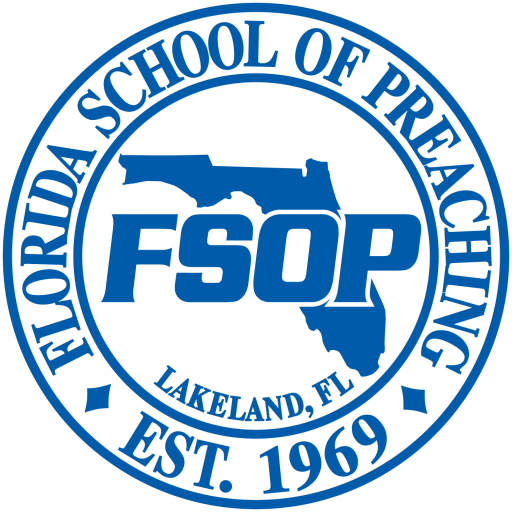
 Alumni
Alumni Lectureship Audio
Lectureship Audio Lectureship Video
Lectureship Video
